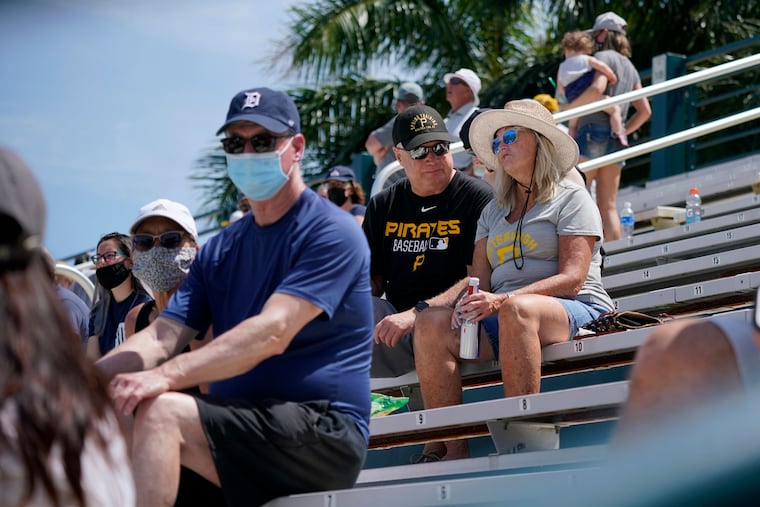My patient just isn’t comfortable yet with pandemic socializing, and that’s OK | Expert Opinion
We are reaching an “in-between” time, a point in pandemic life when some restrictions can be eased. Whereas a rule can be changed overnight though, personal comfort levels may take longer to achieve.

This week, my patient received an invitation to dine indoors at someone’s home with six of his friends.
“We’re all vaccinated, and the CDC [Centers for Disease Control] says it OK,” one friend advised.
Despite the reassurances, he still felt uneasy. Yes, according to the CDC guidelines, gathering indoors with small groups of fully vaccinated people is considered safe, even without masks. Yet he is still not quite there.
Among many factors to consider, COVID-19 is still prevalent in the greater Philadelphia region and, although the vaccine is safe and highly protective against severe disease or hospitalization due to infection, those who have received the vaccine are still susceptible to mild symptomatic infection or a carrier state. Either of these outcomes would be disruptive to my patient’s work, and make him a possible threat to vulnerable friends and family members whom he occasionally sees, with precautions.
My patient said that when the COVID-19 caseload goes down significantly, he will reconsider indoor restaurant dining and visiting vaccinated friends and family inside their homes or his own.
When he politely declined the invitation, my patient’s friends were fortunately very understanding.
“We get it, no problem if you are more COVID careful,” one friend said, using the term to kindly denote someone who is on the very cautious end of the spectrum in how they interpret pandemic safeguards.
The bottom line is that everyone’s level of personal risk assessment may differ. We are reaching an “in-between” time, a point in pandemic life when some restrictions can be eased. Although a rule can be changed overnight, personal comfort levels may take longer to achieve.
I have tried to counsel my patients to find their own COVID-19 comfort level within public health guidelines, and try not to succumb to any pressure to let their guard down sooner than they are ready to. Conversely, if they are vaccinated and beginning to venture out more, I ask them to understand if others in their situation are wary.
Finding reliable, accurate information and guidance has been a challenge throughout the pandemic. We have now entered a new phase in which, along with facts, we need sensitivity to the diverse ways in which people will emerge from the constraints they have been living under for more than a year. This will be especially challenging for families, many of whom have gone months without seeing each other, forgone many meaningful traditional gatherings, and missed celebrating milestones together.
There has been ample media coverage of people partying, throwing caution to the wind, behaving irresponsibly as if COVID-19 were gone or never existed. For many others, COVID-19 has been traumatic.
In the aftermath of any type of physical or emotional trauma, people need the understanding and support of friends and loved ones, and anyone else in their circle of influence. Throughout the pandemic, it has been our civic duty to follow COVID safety guidelines. In the current state, we might consider a new duty: Show respect and allow each other to find our individual thresholds to come out of our “bubbles.” It is part of the healing process.
Jeffrey Millstein is a primary-care physician and medical director for patient experience-regional practices at Penn Medicine.